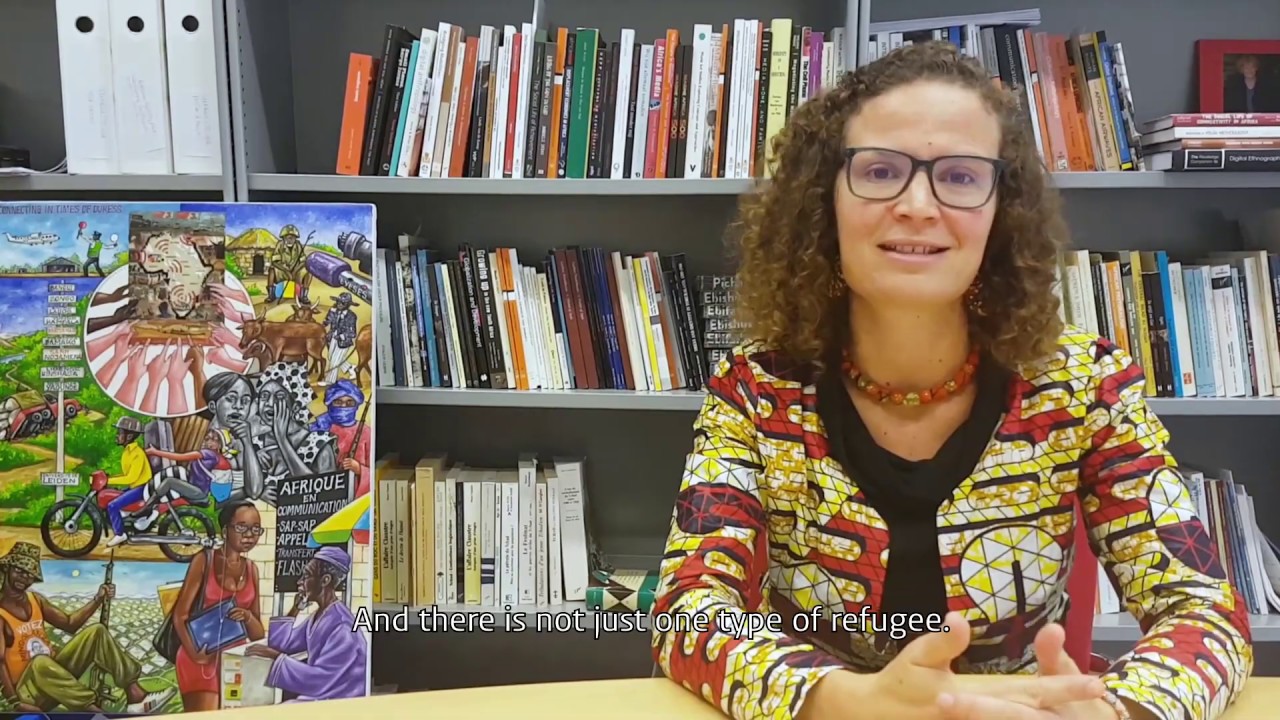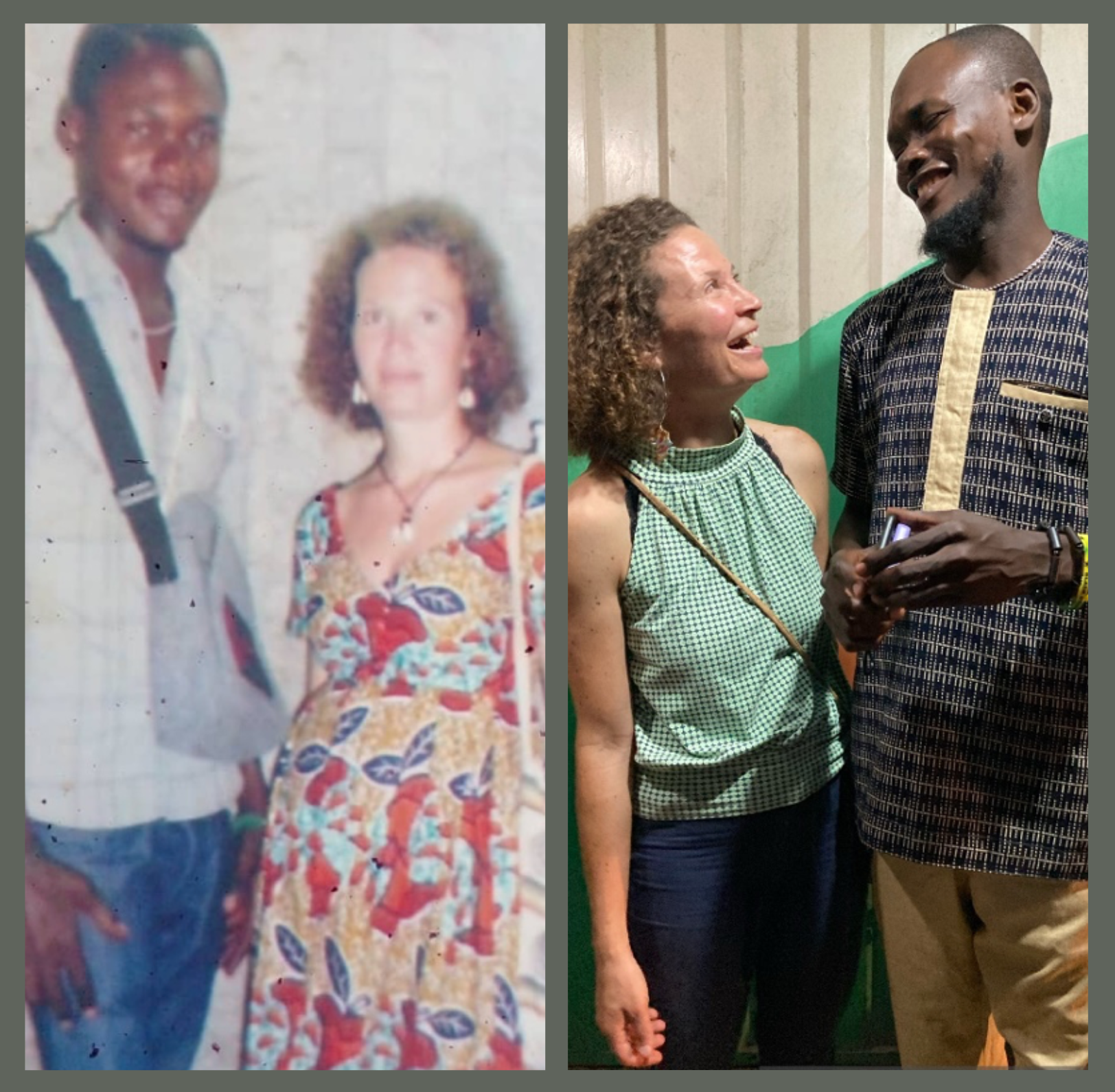In September 2023, I participated in MIASA’s (Maria Sibylla Merian Institute for Advanced Studies in Africa) midterm conference on Sustainable Governance in a Time of Global Flux at the University of Accra in Ghana. Being in Accra for the first time, it was particularly inspiring to meet scholars from different African and European countries in Legon, one of the oldest university campuses in Africa. ‘Old’ by modern standards of course, if we consider Ancient history, Africa has a long history of universities that predate the establishment of universities in Europe. But as it is often the case, it is the unplanned encounters taking place at the margins of bigger events that end up being most meaningful – precisely because we had not expected them.
This blog describes one such unexpected encounter in which I coincidentally met a person whom I had last seen in Kinshasa in 2015 at a time I was conducting research with the community of Central African refugees. Almost a decade has passed since I concluded this fieldwork, and, as many of my colleagues, I have kept in contact with some people and lost contact with others.
Esatis, an artist and journalist from the Central African Republic living in Kinshasa, is one of the people I stayed in touch with. We interact through WhatsApp, especially by commenting on our WhatsApp statuses. As I started posting from Accra, Esatis commented on my posts mentioning that he was happy to see me on the continent. I replied and he retorted by asking if I was interested in meeting one of the communauté (read the Diaspora from the Central African Republic) living in Accra. I knew it must have been Christ, whose contact details I had lost. I was right. Esatis laughed, but no more than half an hour later he sent me Christ’s Ghanaian number. Later that day, Christ and I agreed that we would meet after the conference had concluded on Thursday.
On the following Saturday night in Lapaz, a popular neighbourhood in Accra, a tall, elegantly dressed and perfumed young man walks in to the road side bar where we were playing pool with friends. Eight years has passed but we recognized each other immediately.
I had first met Christ in Kinshasa in 2014 when he was a refugee fleeing violence in the Central African Republic. At the time he was young and reckless. His older brother worried about his attitude and especially about his motorbike driving skills.
Back then, Christ, exasperated by the lack of studying opportunities that Kinshasa offered him, had told me about his plans of studying in Ghana. After our ways parted, Christ returned to his family in Bangui and from there on he travelled further on to Ghana. Later on, dreaming about an education in Germany, Christ attempted to reach the EU from Turkey, where he lived, studied and learned Turkish. As he didn’t manage to pursue his envisioned trajectory and after yet another incident in which Christ was not allowed into a bar because of his skin colour, he decided to return to Africa, to Accra.
After a game of pool, Christ took his phone to show me some pictures of our time in Kinshasa. They were pictures of old photographs taken in 2015 which looked as if they were taken out a historical archive. They reminded me of the photographs, discoloured by humidity, that one often sees hanging on the walls of living rooms in the tropics. On one of the photographs, Christ and I stand, looking seriously at the camera; he is an adolescent wearing a shirt and a pair of jeans and I am seven months pregnant wearing a colourful robe.
During my research in Kinshasa I had taken many pictures and recorded interviews, including of Christ. I had collected data that, with time, had turned into a small archive of a precise period of the lives of a group of refugee-students far away from home. It now dawned on me that I had not been the only one recording, collecting, archiving: Christ, too, had an archive, which he carried digitally on his phone. I also had become part of Christ’s records and these photographs were a proof that. I had observed him and studied his movements in the past, but he had also observed my moves and kept a digital archive of them.
We left the pool bar and walked towards one of the streets where the ‘Francophone’ community in Accra usually hang around. It was a street filled with roadside bars where Gabonais, Centrafricains, Congolese, but also Guine-Equatorians meet. We sat down at a bar, ordered beers and I started to inhale the atmosphere around me… on a standing table, two young girls were having a jovial conversation in a mix of French and Sango (the national language of the Central African Republic ). Next to them sat two men speaking loudly in Spanish – “Equatos,” I was told. Two Gabonese friends of Christ walked by and greeted us in French. The bar next door was playing ndombolo (Congolese music style) music from the speakers.
Chatting with Christ in this context (while keeping those photographs in mind) I felt wired in, connected, as if I was doing research into the Central African community again. I was part of the network. As ethnographers we observe and are in constant search for connections. Yet, we tend to forget that we are also being observed and networked upon. We chatted about Bangui, Kinshasa, Christ’s trip to Turkey and his mother’s holidays in Togo. There was a peculiar sense of familiarity that was unrelated to the place, as I had never been in Accra before. But it was related to the network, even if only in the role of the awkward researcher who pops up at different places within the network from time to time.
Leaving a physical fieldwork site seems easier than stepping away from a network, especially in digital times. Connected to Esatis I reconnected to Christ and was consequently introduced to a part of Franchophone Accra. Re-connecting came naturally, so it seemed, as if eight years had not passed by. Before parting, Christ and I took another picture. We did the same pose as eight years before, to add to our digital collection. I am already looking forward to the next meeting.



